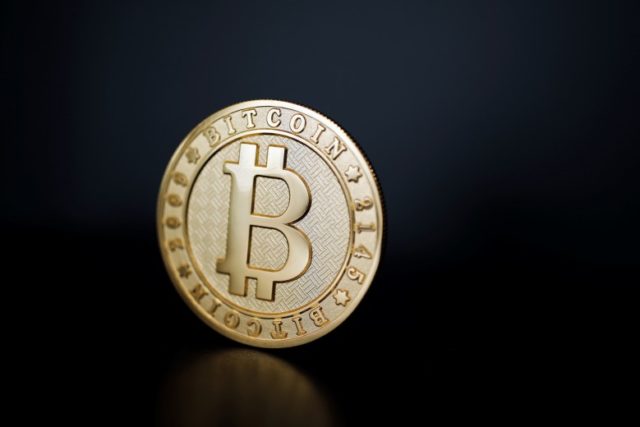Most people have memory lapses sometimes. It's not difficult to find someone who comments that they went out shopping at the supermarket, for example, and came back without several items. Or someone who says they don't remember where they left their glasses or car keys. Someone who opens the fridge, but doesn't remember exactly what they went to get. Or, even, someone who is talking and, suddenly, remains silent for a few seconds because they can't remember that obvious word, which should be on the tip of their tongue.
Cases like this are part of anyone's routine, but the increased frequency of these memory lapses has made many people think that there may be a serious health problem involved, something like early Alzheimer's and even a tumor.
Most of the time, lapses happen due to behavioral issues even , but there are cases that require professional advice. The Einstein Agency listened to experts and listed several reasons that can cause memory lapses.
1 — Routine overload and stress
The brain has the function of short-term memory, which is the ability to keep all information available for a short period of time. The process of transforming this short-term memory into a long-term one is complex. Thus, the excess of information in our daily lives, associated with the accumulation of stress, can leave our brain overloaded and directly affect our memory capacity, which fails at times.
“Routine overload and stress can cause memory lapses as our body produces systemic responses to this stress, including changes in certain regions of the brain responsible for memory. Cognitive processes are affected and make it difficult to insert details and integrate new information into our memories”, explains psychiatrist Elton Kanomata, from Hospital Israelita Albert Einstein.
2 – Anxiety or depression
There are undoubtedly cases of memory lapses that are associated with some health problem, especially anxiety and depression, which can affect memory in different ways. For example, someone with anxiety may have difficulty focusing and processing information, resulting in temporary memory lapses.
A person with depression may have their ability to retain information in the brain impaired due to changes in neurotransmitters. “A common example is forgetting appointments or important day-to-day details due to these conditions”, explains neurologist Polyana Piza, from Hospital Israelita Albert Einstein in Goiânia.
Psychiatrist Kanomata also says that mental disorders commonly express cognitive symptoms, including memory impairment. “One of the main mechanisms that lead to this is related to the same process linked to stress in specific regions of the brain, which can affect, in the long term, cognitive performance”, he warned.
3 – Sleepless nights
It is not new that people sleep poorly – it is estimated that 30% of people have a sleep disorder, such as insomnia. According to neurologist Letícia Soster, from the Sleep Assistance Medical Group at Hospital Israelita Albert Einstein, people often do not prioritize the quality of their sleep.
“Many go to bed later than they need to. In bed, they look at their cell phones and other screens, which inhibits the production and release of melatonin. People end up sleeping due to tiredness, and not in a natural way, which would be for the body to relax and prepare for sleep. And they have to wake up very early. The consequence is that the majority are sleep deprived and this can cause difficulty concentrating, remembering words, understanding a context. It is the effect of tiredness that has not been recovered”, explains the specialist.
According to the neurologist, problems with sleep alter the attention mechanism. “Often, when our brain is not rested enough, it spends energy focusing on staying alert. The brain’s need to maintain vigilance overwhelms our ability to remain attentive and can cause memory problems,” she says.
Additionally, because they are so sleep deprived, people have very short sleep episodes (called microsleeps). “It's very common for people who are sleep-deprived to do that 'little fish' thing sometimes, without realizing it. When this happens, the information she was acquiring is partially broken. This means that the person is unable to pay attention to what is happening because they are worried about staying awake. As the information was not stored by the brain, it causes memory lapses”, he warns.
Soster also points out that excessive use of screens and social media leaves the brain “untrained” to store information. People use many media at the same time, which stimulate immediate pleasure. This is like untraining the brain to read longer and more in-depth. Most likely, people with memory complaints are unable to concentrate on reading. It’s as if the brain is being trained to have shorter, not denser, thoughts,” she says.
The expert reinforces that, if none of these behavioral factors are present when we evaluate what causes memory lapses, it is important to seek an adequate evaluation to see if it is not a deeper issue.
4 – Beginning of menopause
Menopause is marked by the last menstrual period, which usually occurs between the ages of 45 and 55. At this stage, a woman's body begins to undergo several hormonal changes and, among the most classic symptoms, is, without a doubt, hot flushes (hot flashes). But they are not the only ones – memory lapses and lack of attention are also signs that appear more frequently than you might think.
The drop in hormonal levels manifests itself through various physical and mental symptoms, including cognitive disorders, with an impact on memory, language and even orientation in time and space. Called “mental fog”, these symptoms usually persist for around four years.
“During menopause, hormonal changes can affect memory in some women. For example, they may become more scattered and unfocused, forget words in the middle of a sentence, have difficulty remembering what they were going to say or completing their reasoning, have difficulty remembering where they placed objects, forget appointments or have trouble concentrating. in mental tasks”, says Piza, a neurologist at Einstein.
5 – Unregulated eating
Inadequate nutrition can also affect memory, as a diet low in essential nutrients such as B vitamins, omega-3 fatty acids and antioxidants are important for brain health. Adding to this, diets high in processed foods, saturated fats and sugars can lead to a chronic state of inflammation in the body, including the brain. Chronic inflammation is associated with brain cell damage and impaired cognitive function, including memory.
“The omega-3 fatty acids present in fish oils, polyphenolic compounds (for example, cocoa flavanols) and antioxidant compounds (such as vitamins A, C and E) have been associated with improved memory. However, rather than focusing on a single nutrient or food product, attention should be directed to whole foods and dietary patterns. In everyday situations, individuals consume dietary patterns that involve complex interactions between nutrients. Therefore, there is no point in supplementing omega-3 capsules or another specific vitamin and frequently consuming fried foods and ultra-processed foods”, warns nutritionist Serena Del Favero, from Hospital Israelita Albert Einstein.
6 – Attention Deficit Hyperactivity Disorder (ADHD)
According to neurologist Piza, adults with ADHD may experience memory problems due to difficulty maintaining focus and attention. For example, they may forget appointments, frequently lose objects, and have difficulty remembering details of recent conversations. An example would be a person with ADHD who constantly needs to take notes to remember simple everyday tasks.
According to psychiatrist Kanomata, in the case of ADHD, memory failures result from the diversion of attention to where the person should be focused. “People with ADHD often have difficulty maintaining attention or paying attention to details and are easily distracted. Consequently, the quality of how information is recorded in memory is compromised and, when these memories are recalled, these lapses stand out,” he explains.
7 – Previous infections
Many people who were infected with the coronavirus reported lack of concentration, forgetfulness and a feeling of mental fatigue after infection. According to Piza, some studies suggest that Covid-19 infection can cause cognitive problems, including memory lapses, known as “foggy mind” and “brain fog”.
“There are cases of patients who recovered from Covid-19 and reported difficulties in remembering common words, names of known people and recent events. The exact pathophysiological mechanism that leads to these episodes is not known for sure, but it is believed to be something transitory”, he says.
Kanomata highlights that any infection that affects the central nervous system – and not just Covid-19 – can lead to episodes of memory lapses. “It is well recognized in the literature that Covid-19 infection can manifest neuropsychiatric symptoms, including memory, and may persist after acute infection, commonly called long Covid. Of these cases, about a third end up reporting complaints regarding short-term memory,” he says.
8 – Signs of something more serious (tumor, early Alzheimer’s)
According to Piza, persistent memory lapses, especially when accompanied by other concerning symptoms or associated neurological deficits, may indicate more serious conditions that need to be evaluated by a specialist.
“Forgetting a person's name occasionally is normal, but repeatedly forgetting the names of people you know or not recognizing people close to you can be an important warning sign. Furthermore, mental confusion, difficulty performing simple daily tasks and changes in personality are signs that should be evaluated by a neurologist”, he emphasizes.
Kanomata reinforces that it is important to always investigate the possible causes of frequent forgetfulness. “At the consultation, the doctor will investigate not only the complaint of forgetfulness, but also other symptoms that may be present. All of them can lead to other diagnoses. In addition to clinical care, additional tests may be requested by the doctor to assist in the investigative process,” she says.
What to do to prevent it?
According to Kanomata, the stress management can go a long way in reducing memory lapses. This includes having healthy lifestyle habits, including avoiding the consumption of alcohol, tobacco and drugs, performing physical activity regularly and maintaining a healthy diet. Additionally, other strategies are beneficial, such as meditation and acupuncture.
“In cases where the balance between stress and health is lost, this is the moment when our mental health may be compromised and the search for specialized professionals should be recommended”, he says.
Piza also highlights that it is important to establish some strategies, such as time organization, relaxation techniques and general health care. She emphasizes that it is necessary to stimulate the brain with challenging activities, such as learning a new language, practicing musical instruments or participating in games that involve reasoning.
Source: CNN Brasil
I am an experienced journalist and writer with a career in the news industry. My focus is on covering Top News stories for World Stock Market, where I provide comprehensive analysis and commentary on markets around the world. I have expertise in writing both long-form articles and shorter pieces that deliver timely, relevant updates to readers.







